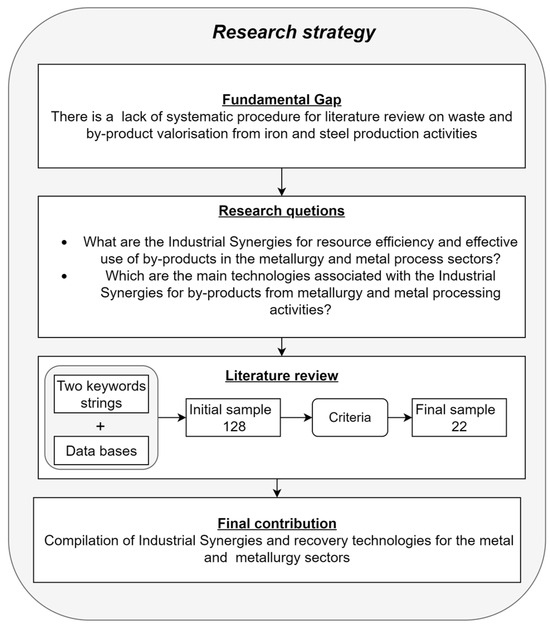Industrial Symbiosis
A topical collection in Sustainability (ISSN 2071-1050). This collection belongs to the section "Economic and Business Aspects of Sustainability".
Viewed by 1812Editors
Interests: supply chain; sustainability; circular economy; industrial symbiosis; eco-innovation
Special Issues, Collections and Topics in MDPI journals
Interests: industrial engineering; industrial symbiosis; energy management; sustainability; circular economy; additive manufacturing; lean manufacturing; quality management systems; sustainable energy systems
Special Issues, Collections and Topics in MDPI journals
Topical Collection Information
Dear Colleagues,
The effective implementation of circular economy principles is seen as one of the solutions for facing climate change by mitigating waste production but also by creating value from it. The research topic of industrial symbiosis seeks to address these concerns by improving the resource exchange between industries and organizations, wherein the waste of one entity may be useful for others. Industrial symbiosis has generally been associated with primarily industries; however, other types of sectors such as research and academia, governments, and local and associated systems (agriculture, forestry, etc.) can also become involved in symbiotic exchanges of material, energy, and knowledge. These exchanges can result in numerous environmental, economic, and social benefits for an overall circular ecosystem composed by a breadth of stakeholders.
This Topical Collection aims to collect original contributions, subject to a rigorous peer review, concerning the main advancements and innovations in the development of industrial symbiosis networks, considering different levels of analysis, including the processes and respective supporting technologies, relationships among network stakeholders, supply chain and logistics concerns, and managerial and political issues. The potential benefits that industrial symbiosis can bring are diverse and wide ranging. Therefore, contributions from different research areas are welcome. Researchers are encouraged to submit contributions that touch on several aspects of industrial symbiosis and its relationship with several contiguous topics.
Topics of interest include current research addressing:
- Processes perspective, which includes the development of new methods and technologies for waste minimization and valorization by means of eco-innovation and eco-efficiency initiatives;
- Organizational perspectives, which comprises several topics such as regulatory frameworks, collaborative relationships, governance, compromise, and trust among stakeholders;
- Technology enablers, namely how industry 4.0 technologies (e.g., additive manufacturing and blockchain) can support or be a driving force to implement an industrial symbiosis network;
- ICT technologies, such as data mining, big data and artificial intelligence applications, for the development and analysis of industrial symbiosis networks;
- Network analysis, including the stakeholder analysis and network properties;
- Multiple methodologies to study the industrial symbiosis-related phenomena such as life cycle assessment, social network analysis, material flow analysis, energy/exergy analysis, among others;
- Multiple contexts such as urban and rural areas, industrial parks, industrial and services, and social and tourism sectors;
- Environmental, economic, and social impact of industrial symbiosis;
- Innovative methods for industrial symbiosis network engagement, dissemination, and teaching.
Prof. Dr. Helena Carvalho
Dr. Radu Godina
Collection Editors
Manuscript Submission Information
Manuscripts should be submitted online at www.mdpi.com by registering and logging in to this website. Once you are registered, click here to go to the submission form. Manuscripts can be submitted until the deadline. All submissions that pass pre-check are peer-reviewed. Accepted papers will be published continuously in the journal (as soon as accepted) and will be listed together on the collection website. Research articles, review articles as well as short communications are invited. For planned papers, a title and short abstract (about 100 words) can be sent to the Editorial Office for announcement on this website.
Submitted manuscripts should not have been published previously, nor be under consideration for publication elsewhere (except conference proceedings papers). All manuscripts are thoroughly refereed through a single-blind peer-review process. A guide for authors and other relevant information for submission of manuscripts is available on the Instructions for Authors page. Sustainability is an international peer-reviewed open access semimonthly journal published by MDPI.
Please visit the Instructions for Authors page before submitting a manuscript. The Article Processing Charge (APC) for publication in this open access journal is 2400 CHF (Swiss Francs). Submitted papers should be well formatted and use good English. Authors may use MDPI's English editing service prior to publication or during author revisions.
Keywords
- industrial symbiosis
- industrial ecology
- eco-innovation
- eco-efficiency
- eco-industrial parks
- urban industrial symbiosis
- material flow analysis collaborative relationships
- industrial symbiosis network analysis
- waste minimization and valorization
- circular economy







